Understanding the Importance of Oral Hygiene Education in Speech Therapy
Oral hygiene education is a vital component of comprehensive speech therapy, particularly when addressing clients who experience difficulties with oral motor skills, feeding, or communication that impact their ability to maintain proper oral care. Speech therapists often work closely with clients—especially children—to promote healthy habits that contribute not only to better speech production but also to overall oral health.
Proper oral hygiene helps prevent dental issues such as cavities, gum disease, and infections, which can further complicate speech and swallowing functions. Integrating oral hygiene education into speech therapy sessions ensures that clients develop essential daily habits, fostering independence and enhancing quality of life.
How to Write Effective Oral Hygiene Education Goals in Speech Therapy
1. Identify the Client’s Specific Needs
Begin by assessing the client’s oral motor abilities, comprehension level, and current hygiene practices. For example, a child with reduced tongue mobility or poor lip closure may struggle with effective tooth brushing. Understanding these factors allows the therapist to tailor goals that address individual challenges and capabilities.
2. Define Clear, Measurable Objectives
Oral hygiene goals should be specific and measurable to track progress effectively. Instead of a vague goal like “improve oral hygiene,” a well-written objective might be “client will demonstrate independent tooth brushing with supervision for 2 minutes, 4 out of 5 sessions.” This clarity helps therapists, caregivers, and clients understand expectations.
3. Incorporate Functional and Educational Components
Goals should blend skill development with education. For instance, teaching a client to use a timer while brushing or explaining the importance of flossing promotes both technique and awareness. This dual approach encourages lasting behavior changes.
4. Address Age-Appropriate and Cognitive Levels
Goals must align with the client’s developmental stage. A toddler may focus on basic imitation of brushing motions, while a teenager could learn to plan and carry out a complete oral care routine independently. Cognitive abilities also influence how education is delivered, with visual aids or simplified instructions for younger or special needs clients.
Common Oral Hygiene Education Goals in Speech Therapy
1. Improving Oral Motor Strength and Coordination
Many clients benefit from exercises that enhance lip closure, tongue mobility, and jaw stability, which support effective tooth brushing and flossing. A sample goal might be: “Client will perform lip closure exercises to improve oral seal during brushing, achieving 80% accuracy in 3 consecutive sessions.”
2. Teaching Proper Tooth Brushing Techniques
Educating clients on how to brush all tooth surfaces adequately is essential. This includes teaching circular motions, brushing duration, and tool selection. A goal example is: “Client will demonstrate correct brushing techniques using a manual toothbrush with minimal assistance.”
3. Promoting Consistent Oral Hygiene Routines
Developing habits requires reinforcement and scheduling. Therapists often incorporate goal statements like: “Client will independently follow a morning and evening tooth brushing routine, recorded in a hygiene log, with 90% adherence over one month.”
4. Enhancing Understanding of Oral Health Importance
Educational goals may include helping clients grasp the link between oral hygiene and overall health, potentially through interactive lessons or caregiver collaboration. An example goal: “Client will verbally identify at least three reasons why oral hygiene is important during therapy activities.”
Practical Strategies for Speech Therapists
1. Use Visual and Tactile Cues
Incorporate charts, videos, and hands-on demonstrations to engage clients and reinforce learning. This approach is especially effective with children and individuals with developmental delays.
2. Collaborate with Caregivers and Dental Professionals
Sharing goals and progress with parents, teachers, and dentists ensures consistency in oral hygiene practices outside therapy sessions. This teamwork supports generalization of skills into daily life.
3. Personalize Goals Based on Cultural and Individual Preferences
Respecting cultural habits related to oral care and adapting education accordingly increases receptivity and success.
Real-Life Example: Success Through Oral Hygiene Education in Speech Therapy
Consider the case of Jamie, a seven-year-old with speech delays and weak oral motor control. Through targeted oral hygiene goals, including practicing brushing with supervision and learning about cavity prevention, Jamie’s therapist helped improve his brushing technique and increased his engagement in daily care routines. Over six months, Jamie progressed to brushing independently and showed improved oral health, which positively influenced his speech clarity.
Where to Find Expert Support and Resources
Writing effective oral hygiene education goals requires skill and knowledge. Speech therapists and caregivers can access comprehensive resources and professional guidance through specialized platforms. For personalized assistance and tailored service recommendations in oral health and speech therapy, visit Dentistry Toothtruth, a trusted source for high-quality support designed to meet diverse client needs.

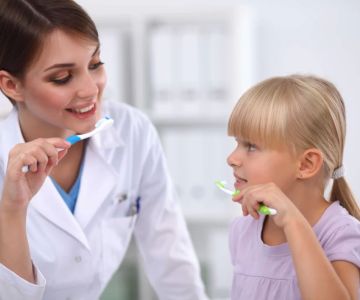

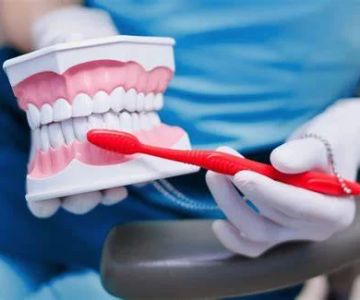
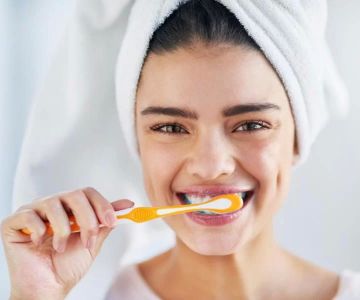
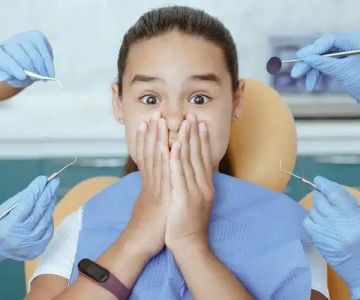
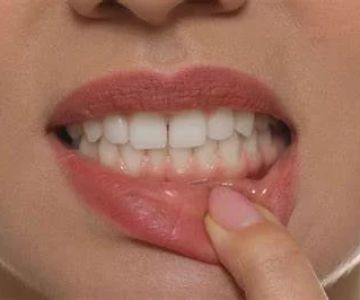
 Westgate Dental Arts3.0 (2 review)
Westgate Dental Arts3.0 (2 review) Coventry Family Dental4.0 (247 review)
Coventry Family Dental4.0 (247 review) Familia Dental3.0 (1028 review)
Familia Dental3.0 (1028 review) Dr. Daniel S. Fife, DDS4.0 (31 review)
Dr. Daniel S. Fife, DDS4.0 (31 review) Dentistry At Suburban Square: Michael I. Wollock, DMD4.0 (1228 review)
Dentistry At Suburban Square: Michael I. Wollock, DMD4.0 (1228 review) Comfort Care Dental4.0 (1156 review)
Comfort Care Dental4.0 (1156 review) The Importance of Oral Health Education During Pregnancy for a Healthy Pregnancy
The Importance of Oral Health Education During Pregnancy for a Healthy Pregnancy Why Skipping Dental Checkups Can Lead to Bigger Oral Health Problems
Why Skipping Dental Checkups Can Lead to Bigger Oral Health Problems Best Tips for Brushing Your Teeth Properly for Healthy Gums: Essential Techniques for Oral Health
Best Tips for Brushing Your Teeth Properly for Healthy Gums: Essential Techniques for Oral Health Advantages of Porcelain Dental Restorations
Advantages of Porcelain Dental Restorations How Can Diabetes Cause Tooth and Gum Problems? Preventing and Managing Oral Health Issues
How Can Diabetes Cause Tooth and Gum Problems? Preventing and Managing Oral Health Issues Healthy Habits for Promoting Good Oral Health and Hygiene: Tips for a Healthy Smile
Healthy Habits for Promoting Good Oral Health and Hygiene: Tips for a Healthy Smile